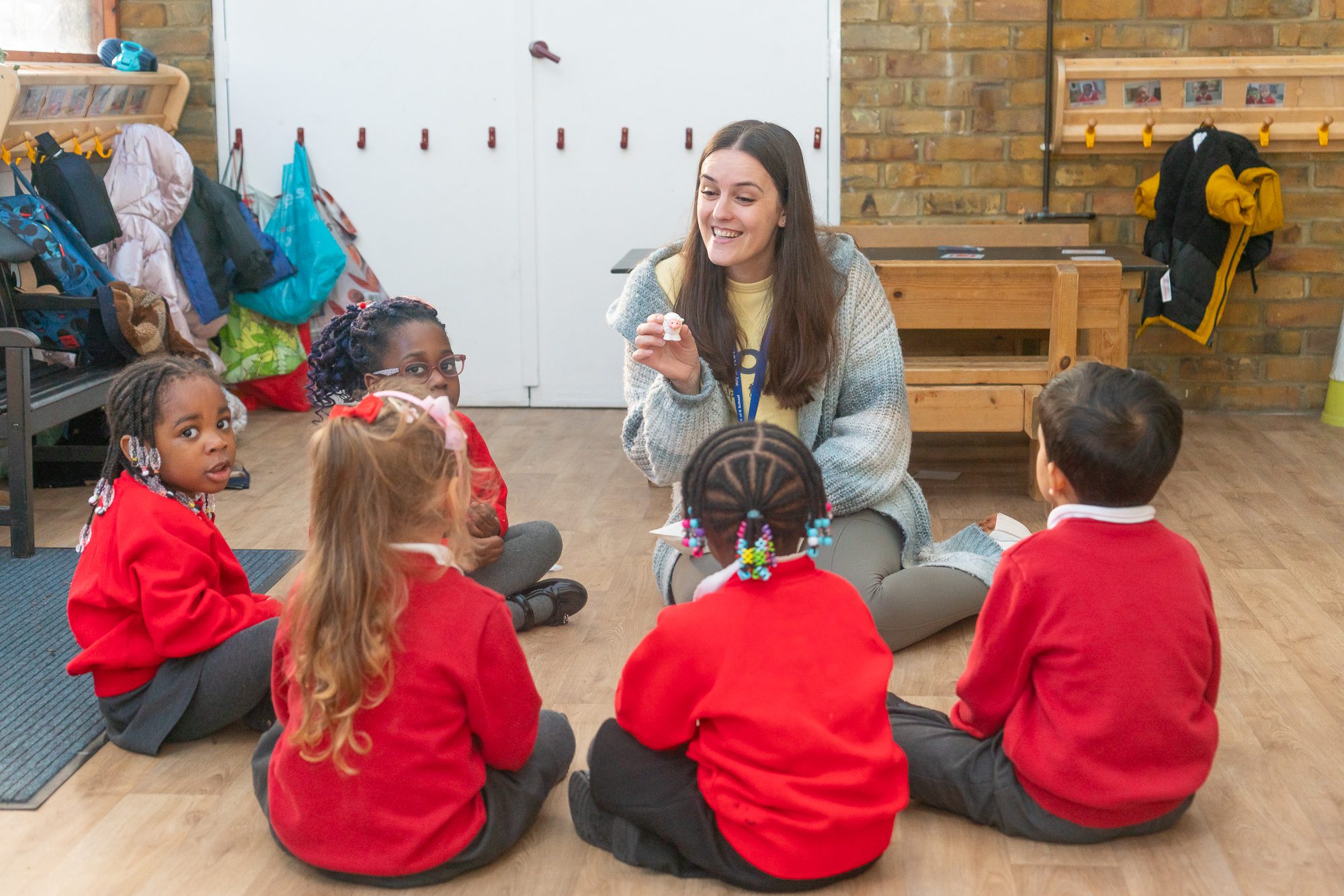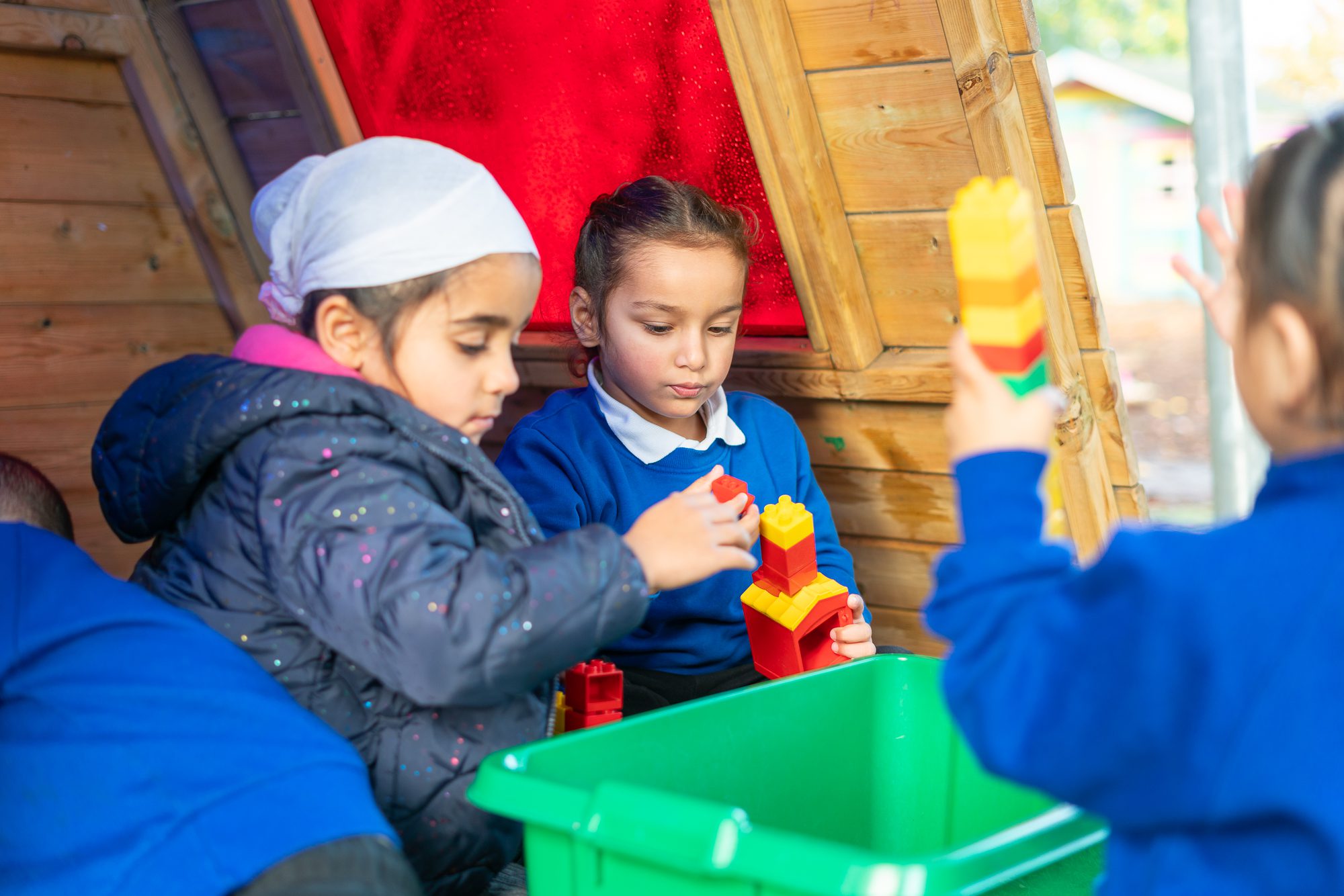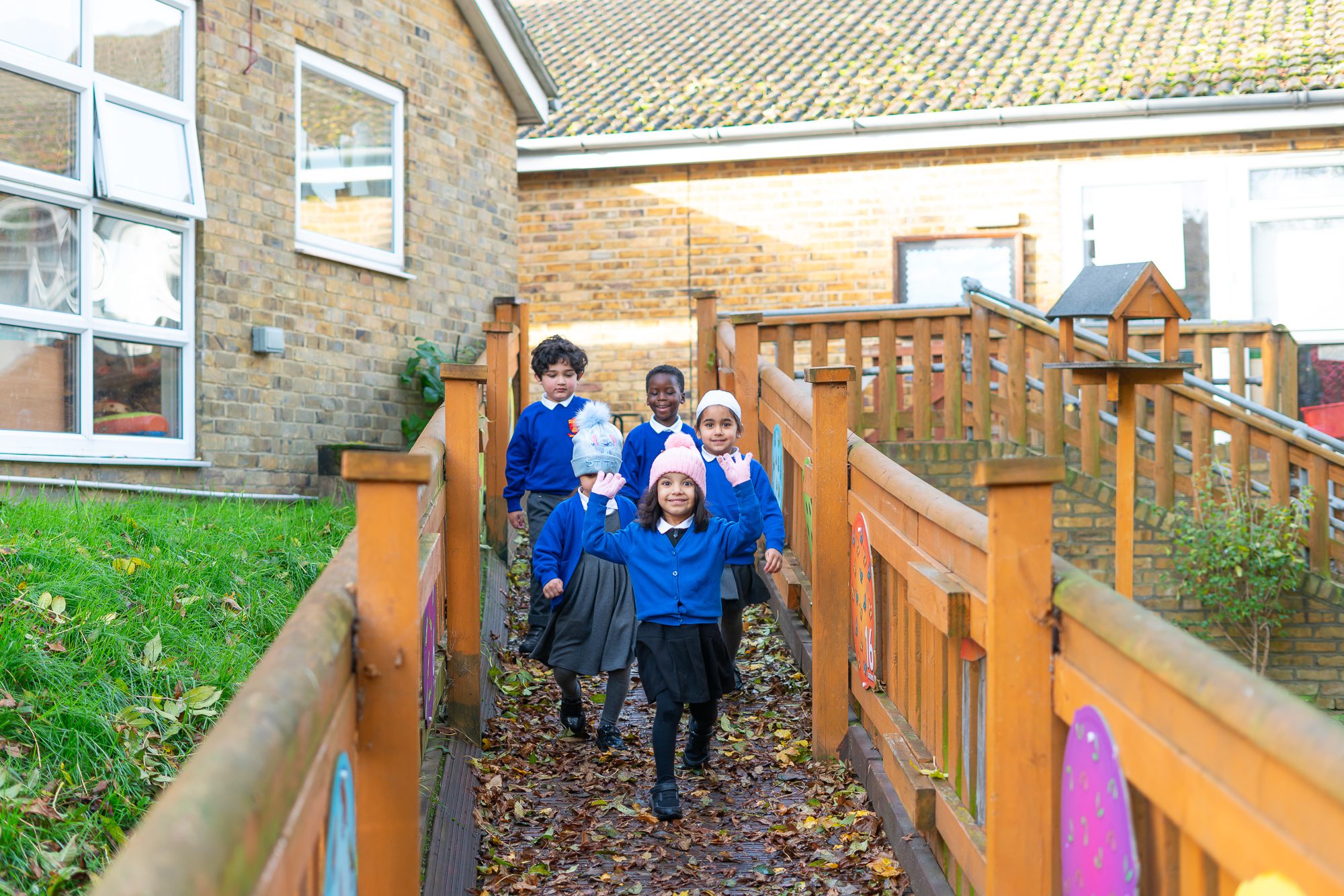At Holy Trinity, we understand…
“Children have a particular way of interacting with the world and learning about and from it. Children interact and learn through movement and doing, involving their whole body and using it to find out and express. They take in information through all their senses, placing much less emphasis on talk … Their brains are like highly absorbent sponges, noticing detail and things that adults miss or filter out. Children need real and relevant experiences, with lots of handling, direct contact and playful exploration of materials. They also need lots of opportunities to imitate, repeat and revisit through their own self-directed play.” – Playing and Learning Outdoors by Jan White.
Thus, our Early Years and Foundation Stage curriculum provision motivates pupils, supports their well-being, and engages them in innovative and inspiring projects.
Intent
In the Early Years Foundation Stage at Holy Trinity C of E Primary School we understand that every child is unique and we both celebrate and welcome our diverse school community. Our values of love, honesty and respect are woven into our school day and this can be seen in the way the children respond to their learning.
We provide a balance of child-initiated and adult-led activities which incorporate continuous play and small group activities. It is through these activities that the children are challenged in their learning in a meaningful way through our enabling environments which support the children to be curious. Activities provided enable the children to grow in confidence and become life-long learners with a desire to achieve. This in turn builds on their experience and the life-long love of learning.
By the end of the Reception year, our intent is to ensure that children are confident and ambitious learners with the skills and knowledge for a smooth transition into Year 1.


Implementation
The curriculum we follow is the Early Years Statutory Framework for the Early Years Foundation Stage. This document, it clarifies the characteristics of effective learning as well as the prime and specific areas that we cover to enable children to achieve their full potential. We pride ourselves in knowing the individual child and incorporating their interests in the activities we provide for them to enjoy an exciting and challenging curriculum.
The school follows the Little Wandle phonics programme and this feeds into their reading and writing. We practice segmenting and blending with decodable books and have separate reading sessions which focus on decoding, prosody and comprehension each week. The children are taught handwriting which is pre cursive in separate sessions during the afternoon. The children are encouraged to share their reading with their parents/carers.
Religious education is a key element in our teaching and the children are included in class worship to begin with then progressing to whole school worship after Christmas once they have settled into the routine of school.
Impact
The impact at our school is shown firstly through the baseline assessment which helps us to ascertain what your child knows already and the knowledge gained from previous settings. Formative assessment during the reception year is recorded in a Learning Journey. The Learning Journey is a document that is used throughout the Reception Year and has observations, photographs and comments and is presented to parents/carers to show the progress that has been made during their child’s reception year.

How to Apply
Please visit our Admissions page here:

